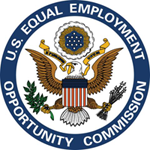|
In the General Sense, Test Fairness refers to whether or not a measurement used in making an employment decision works against certain candidates in a way that is not connected with their ability to perform the job well.
For instance, if a company was hiring customer service staff but refused to hire anyone with a short haircut, we would say they were using an unfair criteria, since hair length does not have anything to do with the delivery of customer service. Similarly, if a company only hired file clerks who scored high in the 'Innovative and Creative' portion of a personality test, we might infer that they were using an unfair criteria.
In the Legal Sense, Test Fairness refers to whether or not a measurement used in making an employment decision works against certain groups of candidates who are protected by law against unfair discrimination in a way that is not connected with their ability to perform the job well. an employment decision works against certain groups of candidates who are protected by law against unfair discrimination in a way that is not connected with their ability to perform the job well.
In the United States, Civil Rights legislation protects various groups of people from unfair discrimination in hiring. These laws make it illegal to discriminate against someone (applicant or employee) because of that person's race, color, religion, sex (including gender identity, sexual orientation, and pregnancy), national origin, age (40 or older), disability or genetic information.
Many other countries have similar laws in place.
We strive to prevent unfair testing in both the general and legal sense.
- First, we apply the extensive job analysis performed by the U.S. Department of Labor's Occupational Information Network (O*NET) to only measure characteristics and traits that are clearly related to job success.
- Next, design our tests using techniques proven by decades of research to minimize unfair discrimination. A good example of this is our emphasis on whole-person testing, which avoids over-reliance on any one criteria.
- Next, we collect (usually voluntary) demographic data regarding the protected categories and perform analysis to reduce or eliminate the degree to which each test discriminates among protected groups.
- Finally, we provide controls to our clients to avoid sharing information (such as photos and videos) that could be used to help decision-makers perform unfair discrimination.
We also work closely with our clients to assist them in evaluating their selection processes to avoid practices that may lead to unfair employment decisions. |
